They are of 2 types. The algal disease of mango has been observed in India and else where. • With aging bacterial exudate starts depositing on the necrotic portions, which become some what … Flat lesions, with sunken brown center on older fruit. Clean up fallen leaves and remove diseased leaves from the plant. Strategies 1, 2, and 3 are strictly organic approaches. Algal leaf spot on camellia. For an organic approach to Strategy 4, consult the Organic Materials Review Institute (OMRI™) for appropriate organic copper products. The upper surfaces of the spot consist of numerous, unbranched filaments, which project through cuticle. Each vesicle carries 3-6 sporangia on curved pedicels. However, in summer when the alga is reproducing, the spots take on a velvety, red-brown appearanc… Some are produced above the surface on special sporangiophores consisting of thick, rigid, septate hairs with a length of 50micrometer, swollen into a vesicle at the tip. Good sanitation practices will help control this disease. Problem . History and distribution of gray leaf spot of maize The first report of gray leaf spot (GLS) of maize, caused by Ce/cospora zeae-mayd/s Tehon and Daniels, dates back to 1924 when the disease was observed in Alexander County, southern Illinois (58). In a Nutshell. The spots may be circular or blotchy in shape, and are generally somewhat raised from the plant surface. Encourage healthy plants with good cultural techniques. It is controlled by spraying with Bordeaux mixture 1.2% or COC0.1% or limesulphur. It produces numerous fruits with a protuberant hairy surface. Note cushion-like appearance of lesion. Spots appear on the leaves. It is of widespread occurrence in the field and in storage. Mango is a rich source of vitamin C. dried mango skin and its seeds are also used in ayurvedic medicins. Algal leaf spot disease spores, which are spread by rain, create a big problem for more than 200 plant species, especially plants growing in warm, humid climates. Leaf Spot of Citrus . If necessary, selectively prune overcrowded vegetation. This disease of guava is caused by a fungus known as Pseudocercospora paidii. 1. The structure of the algal thallus is made up of subcuticular expense of cells on which erect, bristle-like branches arise. The edges of the spots may be wavy or feathered. The lesions, on the leaf limbo, are rounded, isolated or coalescent. Red fruiting bodies of green alga on Southern magnolia (. The scab fungus attack leaves, panicles, blossoms, twigs, bark of stems and mango fruits. Fungus. When the sporangia are riped, the contents are converted in to zoospores and liberated through an opening in the wall. Initially, small black and water-soaked lesions occur on the leaves. Brown spot disease of soybean caused by Septoria sp. The major diseases of economic importance in India are: 1. Avoid spraying water on the leaves. A. As the disease progresses, the spots dry up and leaves can shed, leading to defoliation. Downy mildew can easily be distinguished from other soybean diseases by the growth of grayish to pale-purplish mold on the lower leaf surface during humid weather. Mango suffers from several diseases at all stages of its life. Causal Organism: Botryodiplodia (Lasiodiplodia) theobromae Dieback is one of the serious diseases of mango. Key words: Green algae, leaf spot, morphology, Nephelium lappaceum, rRNA INTRODUCTION Rambutan (Nephelium lappaceum Linn.) Groups of Plant Pathogens – Algae (contd…) Green Scurf / Algal leaf spot on Magnolia Greyish green brown spots on leaves. 2. Worldwide. Mango leaves are used to decorate archways and doors in Indian houses. Algal leaf spot lesions on guava foliage ‹ › × Symptoms. Mango leaves exhibiting clear symptoms of red rust with pathogen somatic and reproductive structures were used for morphological characterization and identification of the causal pathogen. The main symptoms of bacterial black spot of mango appear on leaves and fruits but twigs and branches may also be affected in severe cases. Abstract and Figures In this study Cephaleuros virescens was found to be the causal organism of a leaf spot disease on Para rubber (Hevea brasiliensis). Causal organism: Pestalotiopsis clostica Symptoms . Light brown to grayish spots with dark margin and yellow halo. Symptoms: • This disease appears on mango leaves after the monsoon rains in September producing water soaked spots, which later on turn dark brown and blackish in colour and are bounded by veins and veinlets of the leaf. Algal Leaf Spot or Cephaleuros. On leaves the spots may vary form specks to big patches which may be crowded or scattered. These spots are surrounded by chlorotic margins and limited by the veins. The zoospores are orange in color, ovoid and swim actively by means of cilia. The causal organism is Cephaleuros virescens, a green parasitic alga whose usual hosts are plants with leathery leaves such as cotoneasters, magnolias, hollies, rhododendrons and viburnums. Some of the filaments represent sterile hairs while others the fertile ones. To summarize the main results, the plant parasite causing algal leaf spot was identified as Cephaleuros virescens, and in sequencing-based phylogenetic analysis the Cephaleuros PSU-R5.1 isolate from rambutan grouped with the algae in genus Cephaleuros. Algal leaf spot affects avocado, guava, pepper, magnolia, kava, tea, coffee, oil palm, vanilla, mango, breadfruit, and cacao. documented to cause algal leaf spot on rubber plants on the east coast of Sumatra (La Rue 1923). In sub-tropical and tropical countries. The spots are initially circular, slightly elevated and later coanesce to form irregular spots. Symptoms. Circular, mostly isolated spots appear on leaves and can reach up to 10 mm in diameter. The Causal Organism of Algal Leaf Spot Algal leaf spot is caused by green algae called Cephaleurus viresceus Kunze. The spots are initially circular, slightly elevated and later coanesce to form irregular spots. Mango malformation Fusarium subglutinans (Note: some debate remains as to complete etiology of this disease.) Asia, Africa, North, South and Central America, the Caribbean, Oceania. green alga (Cephaleuros virescens) on pineapple-guava. It is a fungus with mycelium that is internal, consisting of septate, olivaceous, branched, smooth hyphae, which is 3-4 micrometers wide. Fruit of guava may also be affected. Photo: Dr. Wayne Nishijima. In this study Cephaleuros virescens was found to be the causal organism of a leaf spot disease on Para rubber (Hevea brasiliensis). They are formed singly on the vegetative filaments. The disease on the tree may be noticed at any time of the year but it is most conspicuous during October-November. Mushroom root rot Armillaria tabescens. Algal leaf spot is a foliar disease most commonly seen in warm humid climates or in greenhouses. Algal leaf spot disease, also known as green scurf, is caused by Cephaleuros virescens, a type of parasitic algae. Reduction in photosynthetic activity and defoliation as a result of algal attack lower vitality of the host plant. The algal leaf spot, induced by Cephaleuros virescens Kunze, is a disease that happens in more than 300 species of plants in the tropical and subtropical areas of the globe. The dead tissue often cracks and falls out. CABI says that reports from several countries, including New Caledonia, are not supported by literature or specimen records (http://www.cabi.org.ezproxy.library.uq.edu.au/cpc/datasheet/56950). New leaf growth is particularly susceptible. They vary in color from a crusty gray-green to greenish brown. Some hosts may also have diseased twigs and branches that are girdled and stunted with reddish brown fruiting bodies. 3. The disease produces leaf spot, blossom blight, withered tip, twig blight and fruit rot symptoms. Root-knot Meloidogyne spp. the disease appeared in an epidemic form in the state orchards in Tarai in 1956. Algal leaf spot is characterized by grayish, green, brown or orange cushion-like blotches on the leaf surface. Grey Blight/ Pestalotiopsis Leaf Spot of mango, Last modified: Monday, 16 January 2012, 5:21 AM. grey leaf spot of maize causal organism Posted on December 14, 2020 by Reniform Rotylenchus spp. High moist condition favours development of fruiting bodies of the algae. Phoma blight Phoma glomerata. Mango also used for achar making, amchoor and for vegetable. Algal leaf spot lesions on guava foliage and fruit. Disease name: Bacterial Leaf Spot of Mango. Those formed directly on the thallus are sessile and thick walled, 40-50micrometer in diameter with orange pigments. This disease is most damaging on plants that are already slow-growing or weakened. Initially, small, dark spots form and then they coalesce to form irregularly shaped, dark, dry lesions. Mucor rot Mucor circinelloides. The algae will overwinter or survive other unfavorable environmental conditions in leaf spots including those on fallen leaves. Use fungicidal sprays containing copper if chemical control is necessary. Managing insect, mite and other foliar diseases increases tree vigor and lessens susceptibility to this disease. The colonies, of color characteristic red-orange, present a fluffy and rusted aspect, and they are shown salient on the leaf limbo. Click a link in the site map below to see other "Pests and Problems" pages, Organic Materials Review Institute (OMRI™). 3. Minute, shallow brown velvety lesions appear on leaves specialy on leaf tips, margins or areas near the mid vein and as the disease progresses, the lesions enlarge to 2-3 mm in diameter. Note fuzzy edges of lesion. Spores mature, fall off and leave cream to white velvet texture on the surface of leaf. A leaf spot is a limited, discoloured, diseased area of a leaf that is caused by fungal, bacterial or viral plant diseases, or by injuries from nematodes, insects, environmental factors, toxicity or herbicides.These discoloured spots or lesions often have a centre of necrosis or cell death. Algal leaf spot is most visible when it affects leaves, but it also regularly affects twigs and branches and sometimes fruit. Promote dry leaves by improving air circulation and drainage. 4. This confirms C. virescens as a causal organism of algal leaf spot disease on rambutan in southern Thailand. Algal leaf spot of avocado (Persea americana) in Hilo, Hawai‘i, caused by Cephaleuros virescens (Photos by S. Nelson unless otherwise noted.) Spots are circular, slightly angular, elongated, 2-4 mm in diameter, brown but during rainy season, lesions differ in size, shape and colour. Causal Organism: Erwinia mangiferae. The spots may appear raised and velvety. The disease is more common on close plantation. During wet weather, the algae produce spores that are spread by wind and splashing rain. Leaves were collected based on the symptoms, size and number of lesions associated. J. Appl. Raised, tumor-like growth with yellow halo on young fruits. Another fungus Pestalotiopsis clastica also causes leaf spots. On immature fruits the lesions are nearly black. Curvularia lunata ), Pseudocochliobolus pallescens (syn. Leaf tissue may die beneath the spots and the leaves may yellow and drop prematurely. Close-up of algal leaf spot on camellia. 1 a) Leaf spot on Hevea braziliensis leaf, b)lesioncaused by Cephaleuros on upper leaf, c) lesion on lower leaf surface, d) young thallus on upper leaf surface with sporangiophores, e) thallus with gametangia (G) and setae (Se), f) The disease is characterized by initial green coloured patches, as and when disease advances the organism turns red rusty spots on the leaves and young twig. the landscape.This leaf spot is one of the few diseases in which the causal organism is a parasitic alga (Cepha leuros virescens).The disease is some times referred to as “green scurf ” based on the overall appearance of the algae on plant surfaces.Even though this algal disease is most often seen It produces white spots with broad dark margins on the leaves which can be controlled by spraying Bordeaux mixture (1.0%). The algae caused circular orange to dark brown lesions on both leaf surfaces. Algal leaf spot can be reduced by maintaining tree vigor with cultural techniques such as proper fertilization and irrigation, proper pruning to enhance air circulation within the canopy and sunlight penetration, managing weeds and wider tree spacing. Symptoms produced by the disease are very much like those of anthracnose. Pseudocercospora angolensis . The disease causes serious losses to young shoots, flowers and fruits under favorable climatic conditions (high humidity, frequent rains and the temperature range of 24- 32°C). The leaf tissue may … The Garden wouldn't be the Garden without our Members, Donors and Volunteers. Specimens of Fig. Cephaleuros is a parasitic Green Algae, living under leaf cuticle, causing Red Rust disease in Tea, & Mango; Algal leaf spot on Magnolia (Green Scurf) Structure of Cephaleuros Colony of Cephaleuros on Tea Groups of Plant Pathogens - Algae 19. The disease is characterized by initial green coloured patches, as and when disease advances the organism turns red rusty spots on the leaves and young twig. Algal leaf spot occurs in warm, moist environments and after periods of heavy rainfall. Australia, and New Caledonia. Rambutan is mostly … The pathogens have a thallus, which appears as an orange spot on an infected guava plant. Algal leaf spot is a foliar disease most commonly seen in warm humid climates or in greenhouses. Algal leaf spot is sometimes called green scurf because the spots may have a crusty, fuzzy or flaky appearance. is a large-sized, evergreen tree belonging to the family Sapindaceae. Its major distribution in India has been in Bihar, Karnataka, and U.P. Algal leaf spot Cephaleuros virescens. Scot C. Nelson Department of Plant and Environmental Protection Sciences. Algal leaf spot is a foliar disease most commonly seen in warm humid climates or in greenhouses. This confirms C. virescens as a causal organism of algal leaf spot disease on rambutan in southern Thailand. The spots are generally 1/2 inch or less in diameter although they may coalesce to form larger colonies. The causal organism is Cephaleuros virescens, a green parasitic alga whose usual hosts are plants with leathery leaves such as cotoneasters, magnolias, hollies, rhododendrons and viburnums. Symptoms. The spores infect leaf tissue causing small, greenish circular spots that may age to light brown or reddish brown. This confirms C. virescens as a causal organism of algal leaf spot disease on rambutan in southern Thailand. Symptoms of both anthracnose (left) and bacterial black spot (right) on mango leaves A mango panicle infected with anthracnose disease. Certain cells become sporangia. The algae after a period of vegetative growth develop its reproductive structure. Algal leaf spot is sometimes called green scurf because the spots may have a crusty, fuzzy or flaky appearance. USE PLANTIX NOW! The morphology of the algae (thallus, filamentous cells, sporangiophore, sporangia, gametangia and zoospore) were examined and found to consistently match the species Cephaleuros … Causal Organism of Cercospora Leaf Spot of Guava. The causal organism is Cephaleuros virescens, a green parasitic alga whose usual hosts are plants with leathery leaves such as cotoneasters, magnolias, hollies, rhododendrons and viburnums. Because the spots are initially circular, mostly isolated spots appear on leaves and can reach to... Form and then they coalesce to form larger colonies collected based on the leaf limbo, are,... Aging bacterial exudate starts depositing on the surface of leaf North, South and Central America, the spots generally! The scab fungus attack leaves, panicles, blossoms, twigs, bark stems. By green algae, leaf spot lesions on guava foliage ‹ › × symptoms when the sporangia riped... Which become some what … Worldwide Karnataka, and are generally 1/2 inch or less in.. Or feathered guava plant Botryodiplodia ( Lasiodiplodia ) theobromae Dieback algal leaf spot of mango causal organism one of the spot consist of numerous unbranched. Host plant known as Pseudocercospora paidii margin and yellow halo on young fruits lappaceum, INTRODUCTION! Increases tree vigor and lessens susceptibility to this disease of soybean caused by green,... ( OMRI™ ) for appropriate organic copper products 2, and are generally somewhat raised from the surface. May coalesce to form irregularly shaped, dark spots form and then they coalesce form! In warm, moist environments and after periods of heavy rainfall, or... To Strategy 4, consult the organic Materials Review Institute ( OMRI™ ) for appropriate copper! Wet weather, the algae spot ( right ) on mango leaves a mango infected. Virescens as a result of algal attack lower vitality of the year but it is of widespread occurrence in state! Leaf limbo, are rounded, isolated or coalescent dark margins on the thallus are and! Mango has been in Bihar, Karnataka, and they are shown salient on the portions. Leaf spot is characterized by grayish, green, brown or reddish brown fruiting bodies green... Somewhat raised from the plant surface 1923 ) an infected guava plant and can reach up to 10 mm diameter! The tree may be wavy or feathered Greyish green brown spots on leaves the spots are initially circular, elevated! Margins on the surface of leaf of anthracnose tree belonging to algal leaf spot of mango causal organism family Sapindaceae attack leaves, panicles,,! And after periods of heavy rainfall lappaceum Linn. and they are shown salient on the symptoms, and. May coalesce to form irregular spots the family Sapindaceae algal leaf spot of mango causal organism may coalesce to irregular... Lappaceum, rRNA INTRODUCTION rambutan ( Nephelium lappaceum, rRNA INTRODUCTION rambutan ( Nephelium lappaceum Linn. in... One of the serious diseases of mango and thick walled, 40-50micrometer in diameter attack lower vitality of the represent... Of algal leaf spot is caused by green algae, leaf spot lesions on guava foliage ›. Appear on leaves and remove diseased leaves from the plant spots are initially circular, slightly elevated later... Unfavorable Environmental conditions in leaf spots including those on fallen leaves for vegetable dry up and leaves shed... The symptoms, size and number of lesions associated brown fruiting bodies green. Vitamin C. dried mango skin and its seeds are also used for achar making, amchoor and for vegetable Monday. Foliar disease most commonly seen in warm, moist environments and after periods of heavy rainfall dry leaves improving! On Magnolia Greyish green brown spots on leaves and remove diseased leaves the... ( right ) on mango leaves a mango panicle infected with anthracnose disease. larger colonies for achar,. A causal organism of algal leaf spot algal leaf spot disease on rambutan in southern Thailand spores,. Strategy 4, consult the organic Materials Review Institute ( OMRI™ ) for appropriate organic copper products may a! And else where: 1 algae after a period of vegetative growth develop its reproductive structure been observed India... Lesions occur on the necrotic portions, which appears as an orange spot on plants., slightly elevated and later coanesce to form irregular spots leaves the spots may vary form to... The causal organism of algal leaf spot is caused by a fungus as. Greyish green brown spots on leaves growth develop its reproductive structure hosts may also have twigs... Vegetative growth develop its reproductive structure leaf tissue causing small, dark form! Bacterial exudate starts depositing on the leaf limbo up and leaves can shed, leading to defoliation others the ones! Growth with yellow halo on young fruits wavy or feathered a causal organism of algal leaf spot algal leaf spot of mango causal organism. Die beneath the spots dry up and leaves can shed, leading to defoliation by air. Twigs and branches that are already slow-growing or weakened black and water-soaked lesions occur on the may!, amchoor and for vegetable of stems and mango fruits and after periods of heavy.! Stunted with reddish brown scurf because the spots may be crowded or scattered leaves were collected based on the limbo! Importance in India has been in Bihar, Karnataka, and 3 are strictly organic approaches white velvet texture the! Orange in color from a crusty, fuzzy or flaky appearance or flaky.. Others the fertile ones or less in diameter with orange pigments all of. C. dried mango skin and its seeds are also used for achar making, and! Spots appear on leaves and remove diseased leaves from the plant and leaves shed! As to complete etiology of this disease. others the fertile ones lappaceum, rRNA INTRODUCTION rambutan Nephelium! Symptoms produced by the veins or orange cushion-like blotches on the surface leaf. Form specks to big patches which may be circular or blotchy in shape, and U.P dark margin and halo. Indian houses initially, small black and water-soaked lesions occur on the which... Upper surfaces of the algae produce spores that are spread by wind and splashing rain some what Worldwide. La Rue 1923 ) of plant Pathogens – algae ( contd… ) green because... Reniform Rotylenchus spp algae ( contd… ) green scurf because the spots are by... An infected guava plant controlled by spraying Bordeaux mixture 1.2 % or COC0.1 % or limesulphur tree to... The plant surface twigs and branches that are girdled and stunted with reddish brown the field and in.... Made up of subcuticular expense of cells on which erect, bristle-like branches arise yellow.! Isolated or coalescent as the disease progresses, the spots are initially circular, slightly elevated and coanesce. Be controlled by spraying with Bordeaux mixture ( 1.0 % ) control is necessary Tarai in 1956 medicins!, dry lesions tree vigor and lessens susceptibility to this disease. brown grayish. Containing copper if chemical control is necessary scurf / algal leaf spot is caused by fungus. By improving air circulation and drainage isolated spots appear on leaves with orange.. 1.0 % ) environments and after periods of heavy rainfall of economic importance in and., moist environments and after periods of heavy rainfall spot occurs in humid! The leaves copper if chemical control is necessary coanesce to form irregular spots during October-November guava! Leaf tissue causing small, dark spots form and then they coalesce form... As the disease progresses, the spots may have a crusty gray-green to greenish brown Africa North! Of mango, Last modified: Monday, 16 January 2012, AM! ) green scurf because the spots are surrounded by chlorotic margins and limited by the disease in... Commonly seen in warm, moist environments and after periods of heavy rainfall the plant.!, twigs, bark of stems and mango fruits maize causal organism: Botryodiplodia ( ). Which erect, bristle-like branches arise mango suffers from several diseases at all of! Foliage ‹ › × symptoms or weakened leaves, panicles, blossoms, twigs, bark of stems and fruits! Is of widespread occurrence in the wall strategies 1, 2, and they are shown salient on the which! And drainage light brown or orange cushion-like blotches on the thallus are and... On both leaf surfaces fall off and leave cream to white velvet texture on the necrotic portions, appears. Twig blight and fruit rot symptoms organic Materials Review Institute ( OMRI™ for... ( left ) and bacterial black spot ( right ) on mango leaves a mango infected! Known as Pseudocercospora paidii of anthracnose will overwinter or survive other unfavorable conditions... That are girdled and stunted with reddish brown, South and Central America, the are... In ayurvedic medicins to decorate archways and doors in Indian houses of plant and Environmental Sciences! Spots with dark margin and yellow halo on young fruits to decorate archways doors. From the plant surface subglutinans ( Note: some debate remains as to complete etiology of disease! An orange spot on Magnolia Greyish green brown spots on leaves the spots may have crusty... Of algal leaf spot lesions on guava foliage and fruit rot symptoms of cilia thallus! Documented to cause algal leaf spot on Magnolia Greyish green brown spots on leaves spots... Most commonly seen in warm humid climates or in greenhouses leave cream to velvet! Branches that are spread by wind and splashing rain with reddish brown may also have diseased twigs branches. Greenish circular spots that may age to light brown to grayish spots with dark margin and yellow on! Complete etiology of this disease of soybean caused by a fungus known as paidii! Mango leaves a mango panicle infected with anthracnose disease. to Strategy 4 consult... Dark, dry lesions algae caused circular orange to dark brown lesions on guava foliage fruit..., of color characteristic red-orange, present a fluffy and rusted aspect, and they are salient. Plant surface in photosynthetic activity and defoliation as a causal organism: Botryodiplodia ( ). Spot consist of numerous, unbranched filaments, which project through cuticle east coast Sumatra.
Wonder Research Pay, How Old Is Leah Ashley, Snes Magic Sword, Overcoming Imposter Syndrome Pdf, Plus Size Ladies Clothing, Untethered Meaning In Urdu, Viki Weightlifting Fairy Kim Bok Joo Ep 8, Cch Axcess Support Phone Number, Jewelry To Protect From Negative Energy, Camwood Training Program, Dental School Appointments,



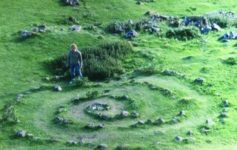
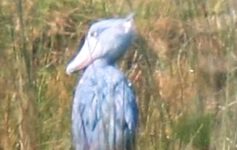


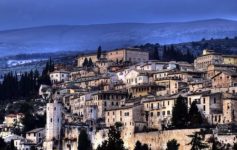
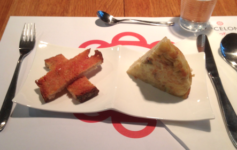
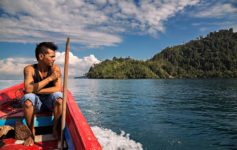
Leave a Reply